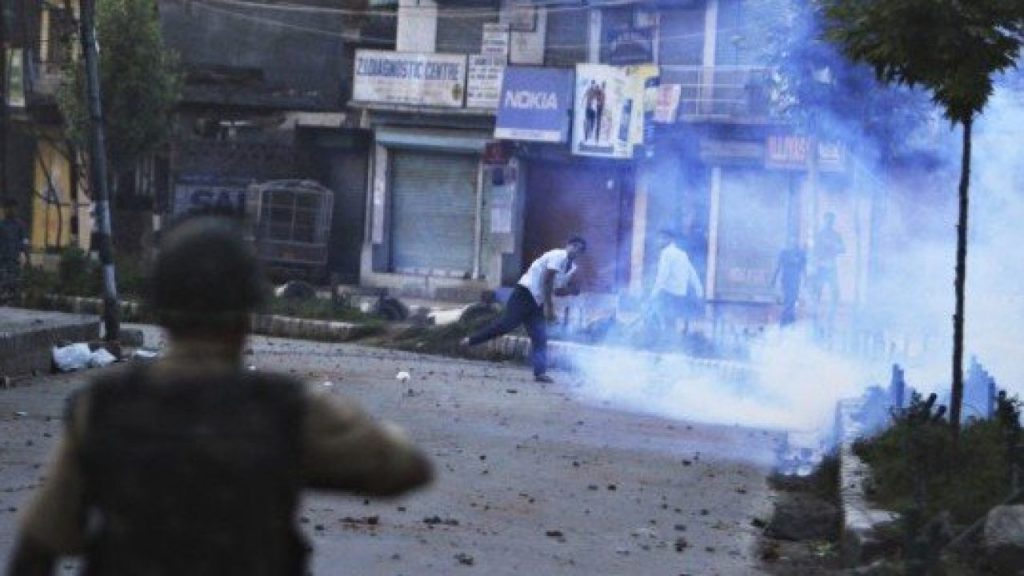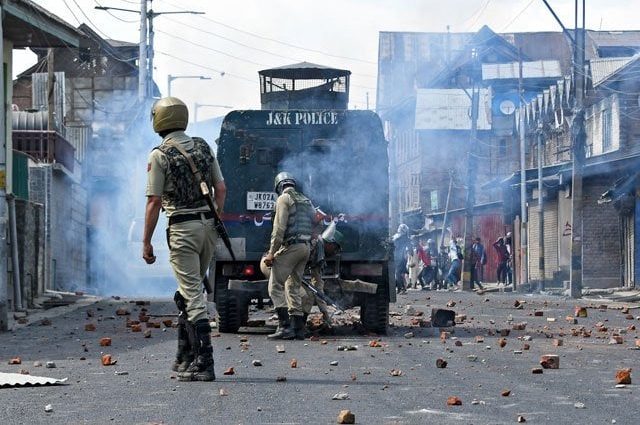
British Parliamentarians condemn human rights abuses in IIOJK
Pledges support for the Kashmiri people’s fundamental rights & their right to self-determination.
Mushaal Mullick says Indian army’s actions in Occupied Kashmir surpassed atrocities witnessed in numerous military conflicts in the world
MUZAFFARABAD ( Web News )
Speakers including some prominent members of the British Parliament while shedding light on various dimensions of the Kashmir dispute has called for an immediate cessation of human rights violations by Indian troops in illegally Indian-occupied Jammu and Kashmir.
Organized jointly by the University of Azad Jammu and Jammu and Kashmir (UAJK) and the UK-based Rights to Self-Determination Movement (International), the speakers strongly condemned the grave human rights abuses in occupied Kashmir and pledged support for the Kashmiri people’s fundamental rights and their right to self-determination.
Special Assistant to the Prime Minister of Pakistan and Minister of State for Human Rights, Mushaal Hussein Mullick, addressed the audience and highlighted that occupied Kashmir represents the world’s largest military concentration. She stressed that the Indian army’s actions in Occupied Kashmir have surpassed the atrocities witnessed in numerous military conflicts in the world.
Mushaal Mullick underscored that Kashmir stands as the only region in the world where sexual violence against women, children, and even men is systematically used as a weapon of war. She further expressed concern about the potential use of nuclear weapons by the RSS-led Indian government to further their agenda. She drew attention of the world to the plight of Muhammad Yasin Malik, leader of the Kashmir Freedom Movement, and the atrocities committed against him in an Indian Jail. She emphasized that the Modi led government in India might go as far as judicial murder of Yasin Malik in a bid to solicit the support of extremist Hindus for electoral gain.
Andrew Gwynne, a member of the British Parliament, emphasized the British Parliament’s strong commitment to supporting the Kashmiri people’s right to self-determination and addressing human rights violations in the disputed region. He highlighted the efforts of both the All-Party Parliamentary Group on Kashmir and Friends of Kashmir from the Labour Party in advocating for Kashmiris’ rights and the protection of human rights. Gwynne stated that he pledged to be a voice for those who are voiceless, both within and outside the British Parliament, after hearing about the atrocities in occupied Kashmir during his constituency visits. This commitment has guided his actions for several years.
Naz Shah, another British Parliament member representing the Labour Party, emphasized her unwavering support for the oppressed Kashmiri people. She noted the stark contrast between the challenges faced by parents in Azad Kashmir and occupied Kashmir, where children’s safety is uncertain even when they go to school. She underlined that the struggle for Kashmiri peoples’ rights spanning 76 years, must be supported by the global community to prevent further oppression.
Vice-Chancellor Prof. Dr. Muhammad Kaleem Abbasi expressed his gratitude for the valuable insights shared by the esteemed speakers and their commitment to raising awareness about the human rights violations in occupied Kashmir. He reiterated the university’s dedication to providing a platform for intellectual discourse and discussions on pressing global issues including conflict of Jammu and Kashmir.
Chairman of the Right to Self-Determination Movement (Global), Raja Najabat Hussain (Stara-I-Pakistan), expressed his appreciation for the university’s support in highlighting the Kashmiri people’s human rights and their right to self-determination. He urged students and faculty members to use modern communication tools and social media to raise global awareness about the injustices faced by Kashmiris.
Others speakers highlighted the urgency of the situation and emphasized the importance of international support for the Kashmiri people’s fundamental rights and self-determination.

